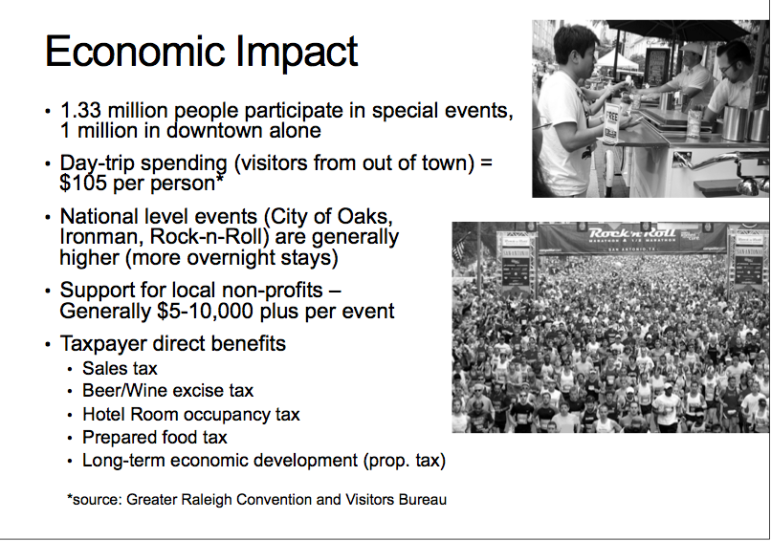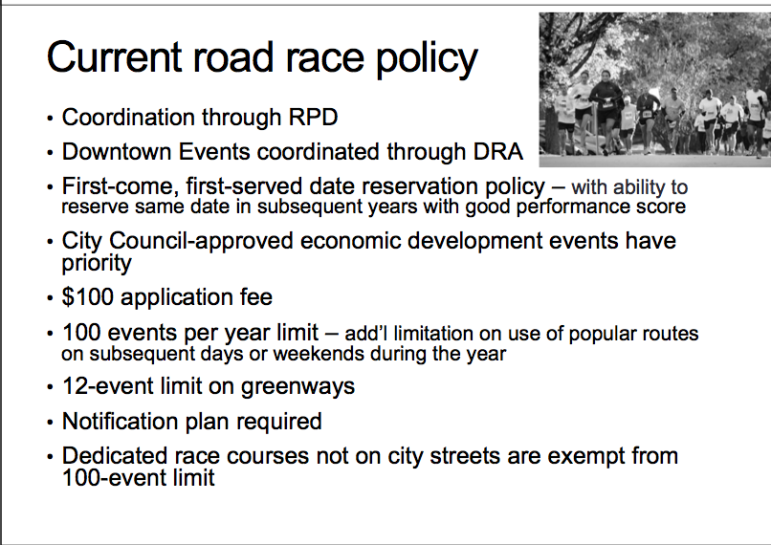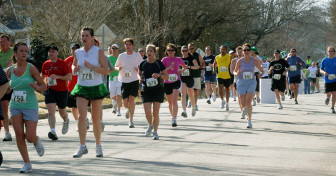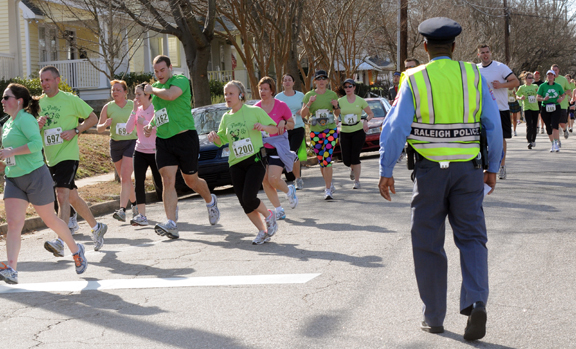Councilors and Raleigh staff members hope a new central office to coordinate events will improve things for both event organizers and a growing number of residents complaining about them.
Raleigh is getting bigger, and one of its latest growing pains is the number of special events such as road races and music festivals. While they have a positive economic impact and provide community activities, residents have complained about the problems they cause, including road closures.

City Councilors Tuesday approved a series of staff recommendations aimed at improving the organization of events on public streets, including the creation of a permanent special events office.
Assistant City Manager Dan Howe said ideally, this office would open at the start of the next fiscal year.
Although not yet fully approved, Howe envisions three staff members to handle event applications, coordinate with emergency management teams and event organizers, and act as a point of contact for concerned residents.
Today, there is no single point of contact for events.
“Without any single point of contact, it’s hard to know who to call when a problem pops up,” Howe said.
The Raleigh Police Department handles event applications, which are later approved by City Councilors. For events downtown, the Downtown Raleigh Alliance works with event organizers to make sure everything runs smoothly.
Bringing the entire operation in house would cost the city about $225,000 for the first year, with ongoing salary costs at an estimated $175,000.
Howe suggested changing event fees to a graduated structure. Based on the 2013 events, the city could raise between $30,000 and $50,000 a year to support the new office.

City of Raleigh
Historically, fees for special events have been low as to not discourage smaller groups, such as nonprofits, that use events as fundraisers.
By mid-year, Howe recommends that the city should keep a city-wide calendar of events, begin development of a web-based application and start putting communications and notification policies in place.
Howe said that the organizers of last week’s City of Oaks Marathon did a lot to get the word out and the race was heavily covered by the media, but he still knew people who weren’t aware what roads were going to be closed, prompting complaints.
“There’s still a lot we can do,” he said.
Howe said the city should start taking advantage of the latest technology and partner up with media companies to get the word out.

Karen Tam
In October, the city began distributing a weekly newsletter that includes all of the events. Street closures and road races are also listed on the city’s website.
Councilors agreed to hand event coordination to the city’s emergency management coordinator until the new office is created.
Is 100 Enough?
The city’s road race policy was updated earlier this summer to cap the number of races at 100, but Councilors have already raised questions about it.
Howe said there is already a waiting list for more races.
It’s no surprise that downtown and Hillsborough Street are among the most popular race routes. Councilors questioned whether there should be a limit not on the total number of races, but a limit on how many races can be held in any one part of the city.
Doing so might push some races to underutilized parts of the city, such as North Raleigh, or onto the greenways.
Councilor Mary-Ann Baldwin asked that the overall policy and event communication plans be reviewed in the Law and Public Safety Committee.
The committee is already reviewing two races, which will be included in another conversation about the race policy.
